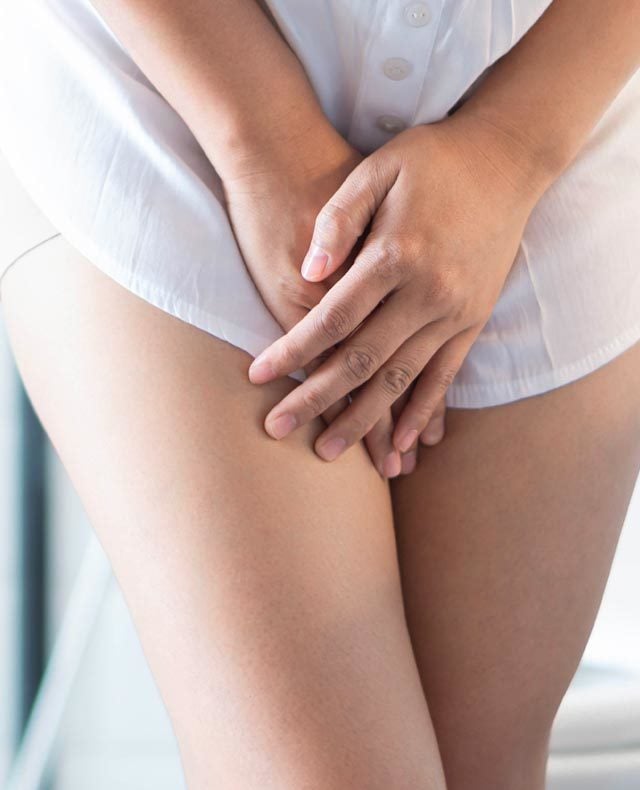Incontinence
Urinary incontinence is the lack of bladder control causing unintentional passing of urine. It can have a negative impact on your lifestyle and mental health.

There are two different main types of urinary incontinence that affect people, these are:
- Stress Incontinence
- Urge Incontinence (overactive bladder)
Causes
There are a range of different causes for weak pelvic floors. Some causes are still unidentified however there are a couple:
- Pregnancy
- Overusing the pelvic muscles
- Pelvic surgery
- Obesity
- Natural ageing process
- Traumatic injury to the pelvic area
Treatments
At Zenith we offer Votiva and [Vaginoplasty] to help with this condition.
Votiva is a specially designed vaginal tightening treatment that works with the FormaV hand piece to gently heat tissue using the gold standard Radiofrequency technique. It is considered by doctors to be safe,painless, highly effective and the world’s leading medical system for female genital health. It increases blood flow and increases production of collagen/elastin in the area.
Vaginoplasty is a simple but highly successful surgical procedure designed to tighten the excessive laxity of the vagina.
Why choose Zenith Cosmetic Clinic for Incontinence Treatment?
- All consultations and reviews are included in the price
- All consultants are UK trained
- Rated as outstanding by the Care Quality Commission (CQC) in providing care to our patients in a safe and effective manner.
- Registered with the Care Quality Commission (CQC)
- Full member of the British College of Aesthetic Medicine (BCAM)
FAQ’s
Does pregnancy cause weak pelvic floors?
Yes, pregnancy is a common cause for weak pelvic floors.
Can incontinence be hereditary?
Yes, having a weak pelvic floor can run in the family.
Are there any symptoms that might indicate you have weak pelvic floors?
Yes there are a couple symptoms that you can look out for such as:
- Needing to go to the bathroom more regularly
- Constipation
- Leaking urine
- Painful urination
Is incontinence a normal part of ageing?
Even though more people seem to suffer with this condition as they get old it is not a normal part of ageing.
Who can get incontinence?
This can happen to anyone however it is twice as likely for women to suffer from this than men.
This condition can happen to women of any age however it is more common for older women to suffer. Especially because of the hormonal changes women go through in menopause.
What are the symptoms of incontinence?
There are a couple symptoms you can get which link to Incontinence, these are:
- Pressure or spasms in the pelvic area
- Going to the bathroom a lot more than normal
- Bedwetting
Should I drink less water/fluids if I have urinary incontinence?
No, most people believe that with this condition you need to drink less to reduce how much urine you come out. However you can’t completely cut out drinking fluids to help with this condition. You need to have water for good health.










